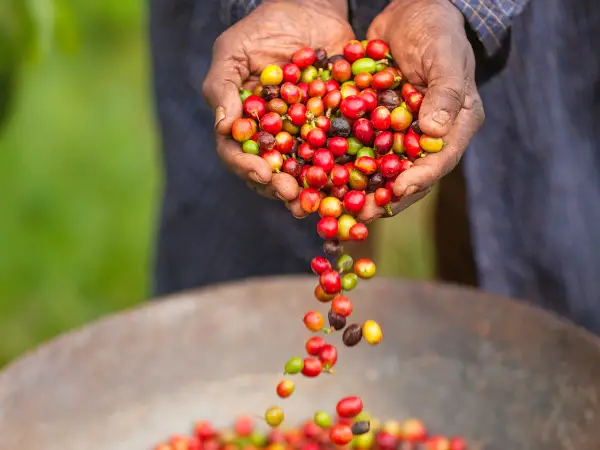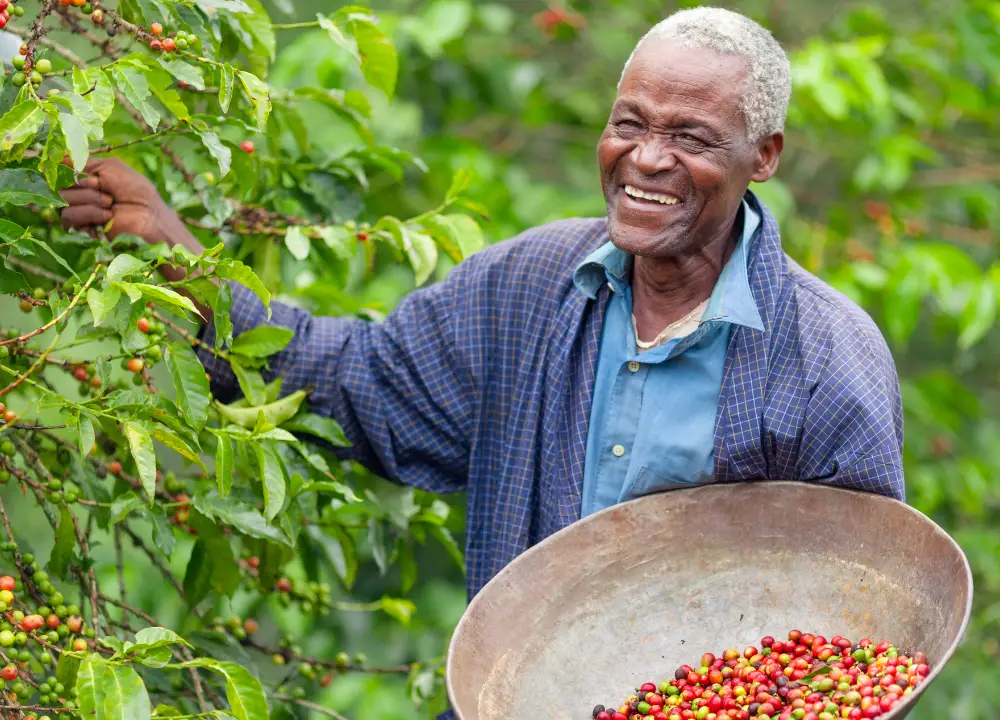Fair Trade coffee is more than just a label. It represents a commitment to ethical farming practices and better living conditions for farmers.
Fair Trade coffee ensures that farmers receive fair wages and work in safe conditions. This movement fights poverty and supports sustainable farming. It connects you to the people behind your favorite brew.
Understanding Fair Trade Coffee
Understanding Fair Trade coffee helps you see the benefits behind your morning brew. This coffee is not just about taste; it’s about ethics, sustainability, and supporting farmers around the world.
The Origins Of Fair Trade Coffee
Fair Trade coffee began in the 1940s. It aimed to help farmers get fair prices for their crops. Over time, it grew into a larger movement. Farmers faced many challenges, such as low prices and unfair treatment. They struggled to make a living. Fair Trade was created to change that.
Key events in the history of Fair Trade coffee include:
- 1946: The first Fair Trade organization formed in Europe.
- 1960s: Fair Trade coffee started to gain attention.
- 1988: The first Fair Trade Certified coffee appeared in the market.
- 1997: The Fair Trade label became more recognized worldwide.
Today, Fair Trade coffee is popular in many countries. Millions of farmers benefit from Fair Trade practices. They receive fair wages and better working conditions. Consumers play a key role by choosing Fair Trade coffee. This choice supports ethical farming and helps communities thrive.
What Makes Coffee “fair Trade”?
Several factors define Fair Trade coffee. The most important is the price paid to farmers. Fair Trade guarantees a minimum price. This price helps farmers cover their costs and support their families.
Other features of Fair Trade coffee include:
- Direct trade with farmers, cutting out middlemen.
- Support for sustainable farming practices.
- Community development projects funded by Fair Trade premiums.
By choosing Fair Trade coffee, you support:
- Environmental sustainability.
- Improved living conditions for farmers.
- Social justice in coffee production.
Fair Trade coffee is more than just a label. It represents a commitment to fairness and respect in the coffee industry.
Certification Standards And Criteria
Fair Trade coffee must meet strict certification standards. These standards ensure that farmers and workers are treated fairly. Several organizations oversee the certification process.
Key certification criteria include:
- Fair wages for farmers.
- Safe working conditions.
- Environmental protection measures.
- Investment in community development.
The certification process involves:
| Step | Description |
|---|---|
| 1 | Farmers apply for Fair Trade certification. |
| 2 | An inspection is conducted by certifying bodies. |
| 3 | If standards are met, certification is granted. |
| 4 | Regular audits ensure ongoing compliance. |
These standards help create a more equitable coffee market. They ensure that your morning brew supports farmers and the environment.

Why Fair Trade Matters
Understanding why Fair Trade matters can enhance your coffee experience. It connects you to the farmers who grow the beans and the communities they support.
Supporting Coffee Farmers And Their Communities
Fair Trade coffee aims to support the farmers who dedicate their lives to growing coffee. These farmers often work under difficult conditions. They face low prices and unstable markets. Fair Trade provides them with a fair price for their products. This helps them improve their quality of life. Here are some key benefits:
- Stable prices for coffee beans
- Access to credit and financial support
- Investment in community projects like schools and clinics
According to Fair Trade statistics, farmers earn up to 25% more than traditional coffee markets. This increase allows them to:
- Provide better education for their children
- Access healthcare services
- Invest in their farms and improve production
Overall, Fair Trade helps build stronger communities and better futures for coffee farmers.
Promoting Sustainable Practices
Fair Trade coffee promotes sustainable farming practices. This means using methods that protect the environment. Farmers are encouraged to avoid harmful chemicals. They use organic practices instead. This protects the soil and water sources.
Some sustainable practices include:
- Crop rotation
- Natural pest control
- Water conservation techniques
By choosing Fair Trade coffee, you support these methods. It helps protect biodiversity and reduces environmental impact. A study showed that Fair Trade farms have:
| Benefit | Impact |
|---|---|
| Higher biodiversity | More plant and animal species |
| Reduced soil erosion | Healthier soil quality |
| Less water pollution | Cleaner water resources |
These practices ensure that coffee farming can continue for future generations.
Ensuring Ethical Labor Conditions
Fair Trade also focuses on ethical labor conditions. Workers on Fair Trade farms receive fair wages. They work in safe environments. This is important for their well-being. Many traditional coffee farms exploit workers. They often face long hours and low pay.
Fair Trade standards require:
- Safe working conditions
- No child labor
- Respect for workers’ rights
By supporting Fair Trade coffee, you help protect workers. Fair Trade certification ensures that these standards are met. This empowers workers and promotes dignity. They can support their families and contribute to their communities.
How Fair Trade Affects Your Cup Of Coffee
Fair Trade ensures that farmers receive fair prices and work in safe conditions. This not only supports their livelihoods but also impacts the quality of the coffee you drink.
The Taste And Quality Of Fair Trade Coffee
Fair Trade Coffee often stands out in taste and quality. Farmers who are paid fairly can invest more in their crops. This leads to better care for the coffee plants. Here are some key aspects:
- Better Farming Practices: Farmers use sustainable methods. This enhances the flavor profile.
- Higher Standards: Fair Trade certification requires strict quality controls.
- Freshness: Fair Trade coffee often comes from small farms. These farms focus on quality over quantity.
Many coffee drinkers notice a difference. A taste test often reveals:
| Type of Coffee | Flavor Profile |
|---|---|
| Fair Trade Coffee | Rich, complex flavors with natural sweetness |
| Conventional Coffee | Often bitter or bland |
These factors contribute to a more enjoyable coffee experience. Fair Trade Coffee not only tastes better, but it also supports the farmers who grow it.
The Environmental Benefits Of Choosing Fair Trade
Choosing Fair Trade Coffee also helps the environment. Farmers are encouraged to use sustainable farming techniques. This protects the ecosystem. Here are some environmental benefits:
- Reduced Chemical Use: Fair Trade farmers use fewer harmful pesticides.
- Soil Health: Sustainable practices improve soil quality.
- Biodiversity: Many Fair Trade farms maintain diverse crops.
These practices lead to:
- Cleaner water sources
- Healthier wildlife
- Stronger communities
By choosing Fair Trade, you support a healthier planet. Your morning brew can contribute to environmental well-being.
Is Fair Trade Worth The Price?
Many people wonder if Fair Trade coffee is worth the higher price. Understanding the reasons can help you decide. Here are some key points to consider:
- Fair Compensation: Farmers receive fair pay, which supports their families.
- Quality Assurance: You often get better quality coffee.
- Community Development: Fair Trade funds projects that improve local communities.
Consider the long-term benefits:
| Factor | Fair Trade | Conventional |
|---|---|---|
| Price | Higher | Lower |
| Quality | Higher | Lower |
| Community Impact | Positive | Limited |
When you pay a bit more, you invest in quality and ethics. Fair Trade coffee supports farmers and the environment. For many, this makes the price worth it.
Finding Fair Trade Coffee Brands
Finding Fair Trade coffee brands helps you choose coffee that supports farmers and their communities.
Popular Fair Trade Coffee Producers
Many brands focus on Fair Trade coffee. These producers ensure farmers receive fair prices for their beans. Here are some popular Fair Trade coffee brands:
- Equal Exchange: A pioneer in Fair Trade, this brand supports small farmers worldwide.
- Allegro Coffee: Known for its quality, Allegro sources beans from Fair Trade farms.
- Peet’s Coffee: Offers a selection of Fair Trade options, ensuring ethical sourcing.
- Green Mountain Coffee: A well-known brand that prioritizes Fair Trade practices.
- Ten Thousand Villages: Focuses on artisan coffee, promoting Fair Trade values.
Here is a table of some Fair Trade coffee producers and their highlights:
| Brand Name | Highlights |
|---|---|
| Equal Exchange | Pioneer in Fair Trade, supports small farmers. |
| Allegro Coffee | Known for quality and ethical sourcing. |
| Peet’s Coffee | Selection of Fair Trade options available. |
| Green Mountain Coffee | Prioritizes Fair Trade practices. |
| Ten Thousand Villages | Focuses on artisan coffee with Fair Trade values. |
How To Identify Fair Trade Coffee Labels
Identifying Fair Trade coffee is simple. Look for specific labels on the packaging. These labels ensure your coffee meets Fair Trade standards. Common labels include:
- Fair Trade Certified: Indicates compliance with Fair Trade standards.
- Rainforest Alliance: Focuses on sustainable farming practices.
- Organic: Ensures no harmful chemicals are used in farming.
When shopping, check the back of the bag. Many brands provide details about their sourcing practices. Here are tips to identify Fair Trade coffee:
- Look for the Fair Trade label.
- Read the brand’s mission statement.
- Research the company’s sourcing practices online.
Buying Fair Trade coffee benefits you and the farmers. It supports ethical practices and ensures farmers earn a fair wage. Your choice makes a positive impact.

